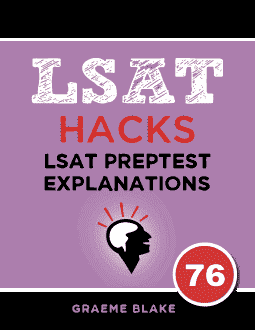This is an explanation for passage 2 of LSAT preptest 76, the October 2015 LSAT. This passage is about biotechnology patents. The author notes concerns expressed by academic researchers that biotechnology patents will hurt their ability to do basic research. The author argues the academic researcher’s concerns are unwarranted.
This section has paragraph summaries and an analysis of the passage, links to the explanations for the questions are below.
Paragraph Summaries
- Industries want to be able to patent biotechnology. Academic researchers are now more likely to support biotech patents since their funding depends on patentability. However, some worry that biotech patents block basic research.
- The worry is that corporations will either sue researchers who use their biotech research materials, or only allow use through expensive licensing.
- There has always been access control and licensing, even without patents. Also, companies probably won’t sue against basic research, and judges often make a non-commercial basic research exception. Patents also provide an incentive for basic research innovation.
Analysis
The author is making an argument against an opposing position. On an argument like this, it’s important to understand why some are worried about biotech patents, and why the author disagrees.
Objections To Biotech Patents
These are in Paragraph 2.
- Scientists needs research materials: genetic sequences, cell lines, and animals.
- Scientists fear companies may legally enforce their patents.
- Scientists fear companies may have very high licensing fees to use patented materials.
Author’s arguments against objections
These are in paragraph 3.
- There have always been restrictions on using others’ research materials.
- It’s not clear that patents can be legally enforced against non-commercial basic research.
- Patents give an incentive to innovate, so they’ll increase research.
Commentary
First, if you missed any of the points that I highlighted, then you need to develop a better sense of when you don’t understand what you’re reading. If you don’t understand something, pause and reread it. This will save you time, because you’ll go very slowly on the questions if you don’t understand the passage.
The author doesn’t fully respond to the objections. For instance, the author doesn’t directly address the worry about high licensing fees.
However, they indirectly address this by arguing that patents won’t be enforceable at all against basic research. If patents can’t be enforced, then there’s no need to pay licensing fees for basic research.


Leave a Reply